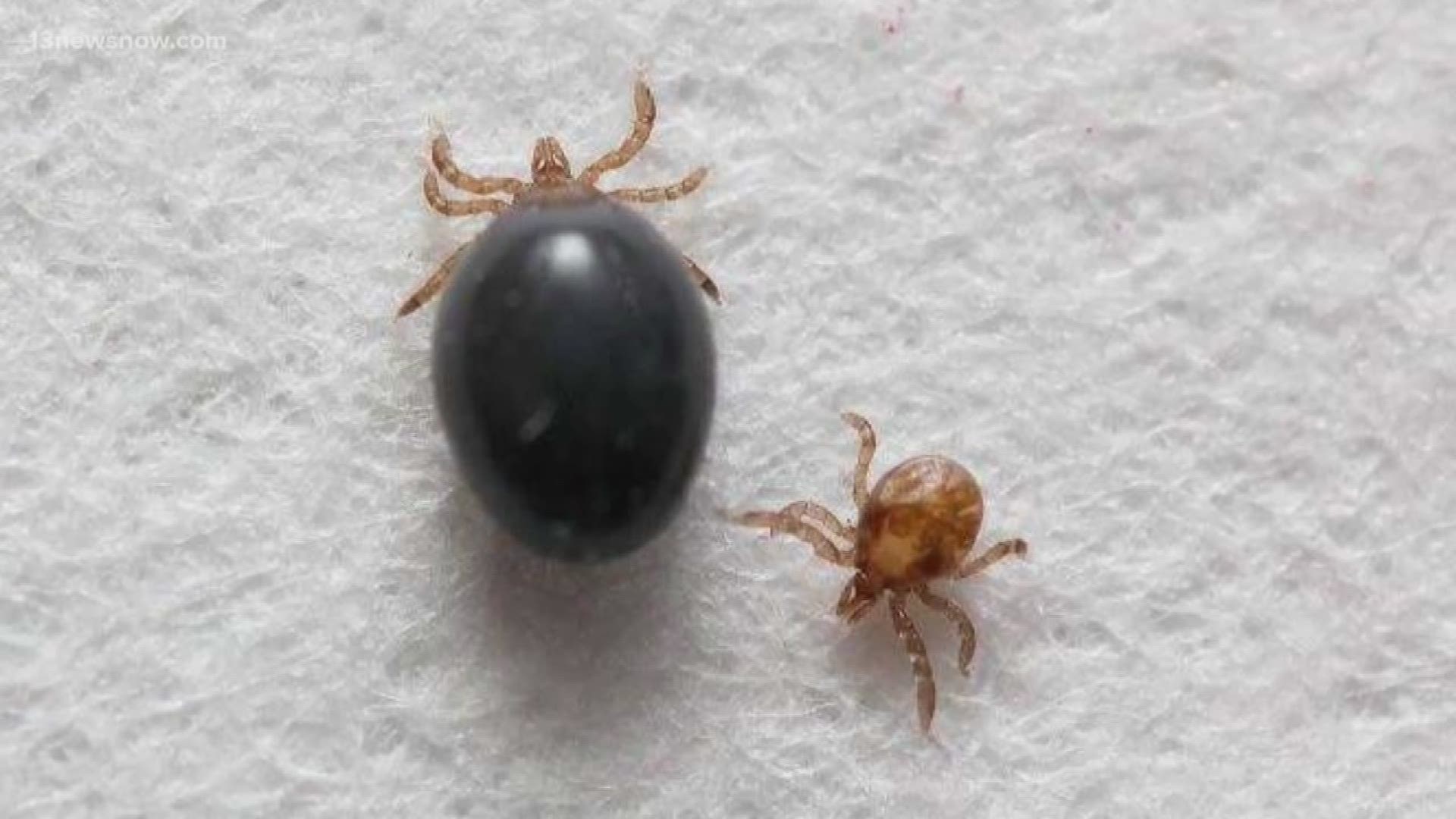NORFOLK, Va. — A local veterinarian warns this tick season might be a little worse than normal because of a milder winter.
Dr. Betsy Marshall of Ghent Vet Hospital said ticks and fleas didn’t get a chance to lay dormant for as long as they normally would.
"You’re going to see more than you would, normally," Dr. Marshall said.
And it’s not just your furry friends who are at risk, ticks also have a taste for human blood.
"It’s the same risk," Dr. Marshall said. "The tick is going to sense the same exact thing for us as it is for a dog. It’s going to be CO2 and heat and once it senses those, it’s going to latch on."
Dr. Marshall said ticks prefer woodsy areas and will lie in wait for a pet or person to brush against them.
Dog owner George Olsen said that’s something he’s aware of and he takes precaution with his two-year-old husky Nikita – and also with himself.
"Pretty much stay on the trail, itself. Of course, he’s good at that. He wants to chase squirrels out in the trees. He thinks he can climb a tree," Olsen said.
"When I play golf, I’m the same way. I lose a ball in the high weeds – which happens frequently, unfortunately. That’s all right. I’ll lose a ball rather than going over there. I had a good friend of mine who came down with Lyme disease chasing a golf ball out in the woods."
There are some things you can do to keep ticks away.
"Typically, if you live in an area where the ticks are on your property, try to clear that brush and vegetation back a little bit so they’re not coming into constant contact with your pet or yourself," Dr. Marshall said.
She said avoiding bushy areas and getting preventative tick and flea medication for your pets also helps.
"I'm concerned about ticks, of course, and fleas," Olsen said. "We treat him [Nikita], every month."
Although tick and flea season starts now, fall is the worst time for ticks because they’ve had all summer to reproduce.

